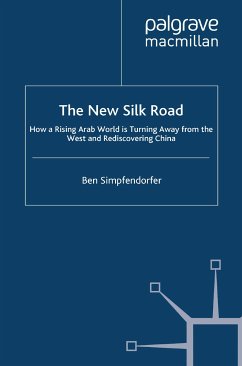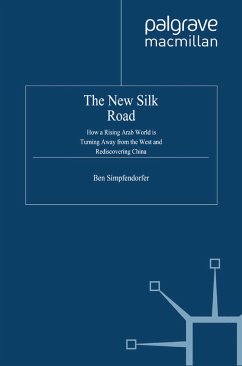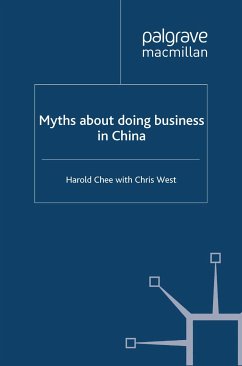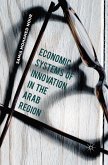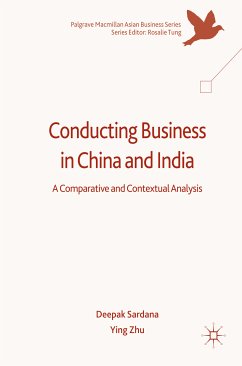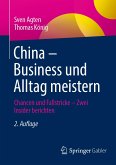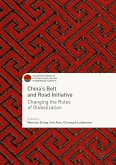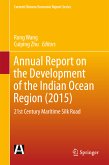Dieser Download kann aus rechtlichen Gründen nur mit Rechnungsadresse in A, B, BG, CY, CZ, D, DK, EW, E, FIN, F, GR, HR, H, IRL, I, LT, L, LR, M, NL, PL, P, R, S, SLO, SK ausgeliefert werden.
'Despite the global economic crisis, the trajectory of the Arab and Chinese economies still match the soaring skylines of Dubai and Shanghai. Furthermore, as Ben Simpfendorfer bracingly illustrates, these are not isolated events but rather the resurrection of a Silk Road symbiosis. For all the region's troubles, this book places the Persian Gulf back where it geographically belongs: at the center of Eurasia and bending towards the overwhelming gravity of China.' - Parag Khanna, author of 'The Second World' and Senior Research Fellow at the New America Foundation
'The macroeconomics of China's rise and the nitty-gritty of Chinese businesses bargaining on the ground in the Arab world are like Parisian courtesans and Eskimos: world's apart, and nearly impossible to reconcile into a single narrative. But Ben Simpfendorfer's New Silk Road provides a Rosetta Stone to achieve just such a reconciliation. With an economists' toolbox for mapping aggregate growth, and a diarists' talentfor capturing the minute, human interactions that join executives and officials from these two ancient worlds, he makes the logic, limits and significance of Sino-Arab engagement understandable.' Daniel Rosen, Principle, Rhodium Group, LLC
'As the chief China economist for Royal Bank of Scotland in Hong Kong and a former resident of both Beirut and Damascus, Mr Simpfendorfer is well placed to tackle the subject. But although he is a professional economist, what sets Mr Simpfendorfer's book aside from the usual run of publications about the mainland's rise is not his command of macroeconomic statistics, but his grasp of how the expanding relationship between China and the Arab world works at the personal level.' - Tom Holland, South China Morning Post

